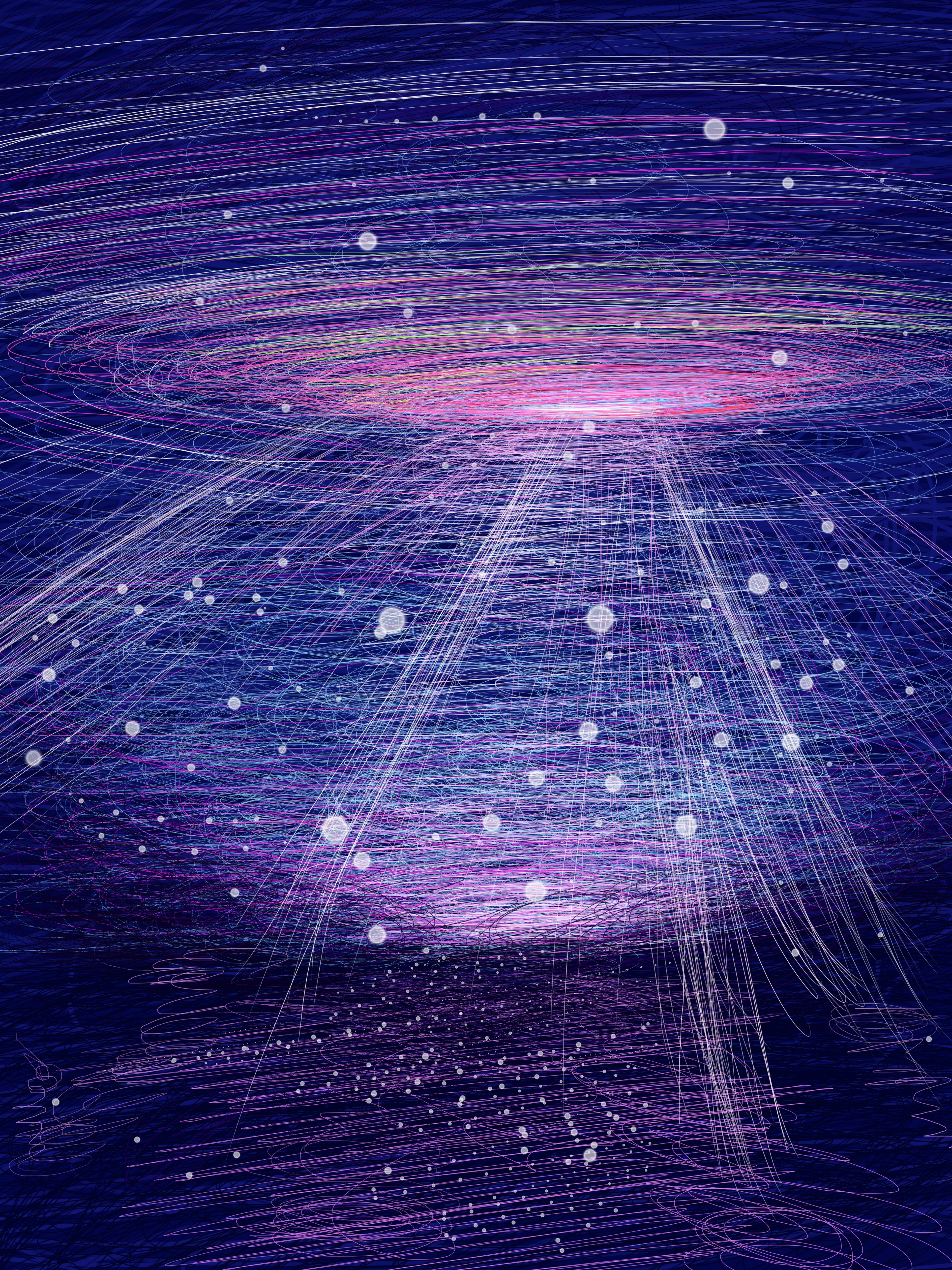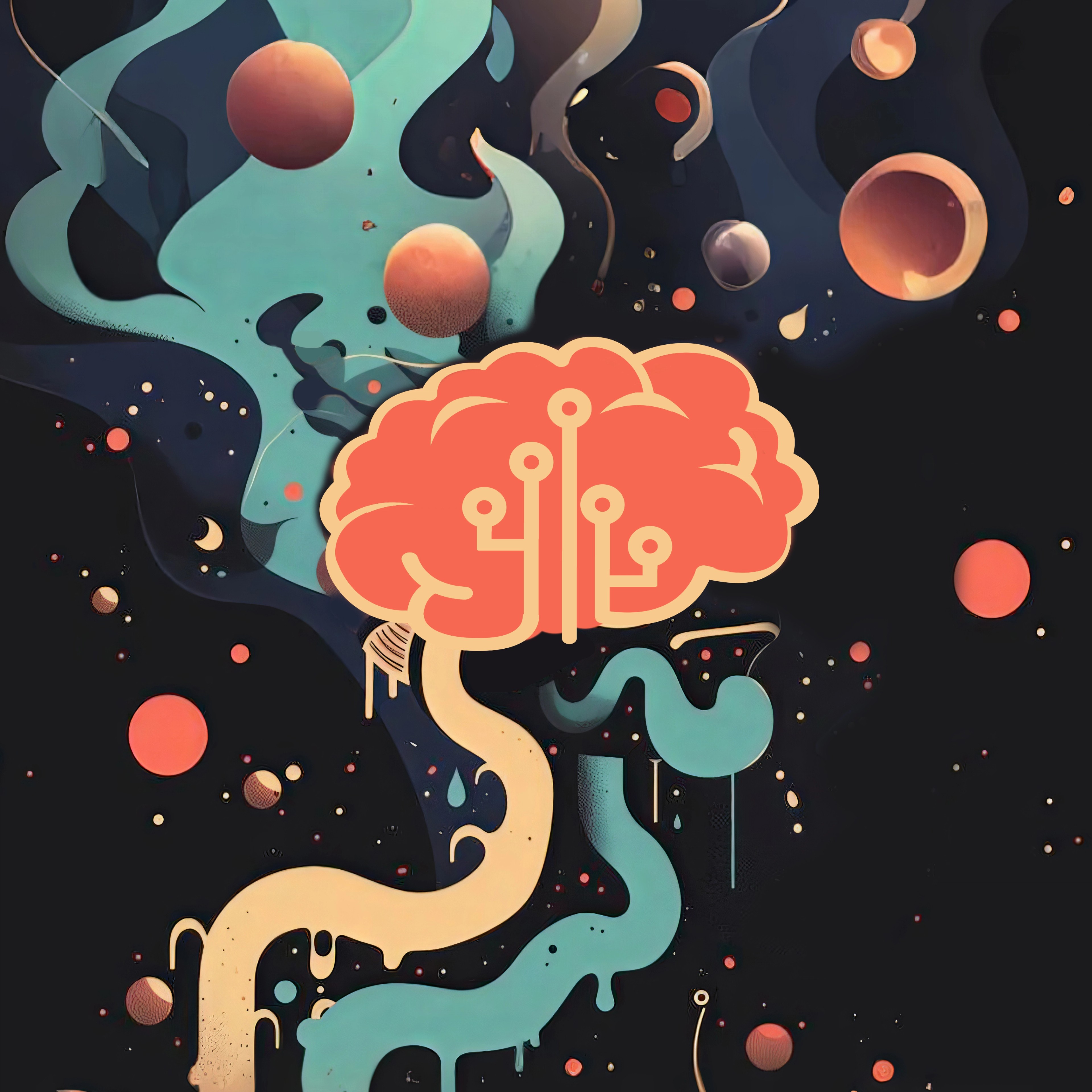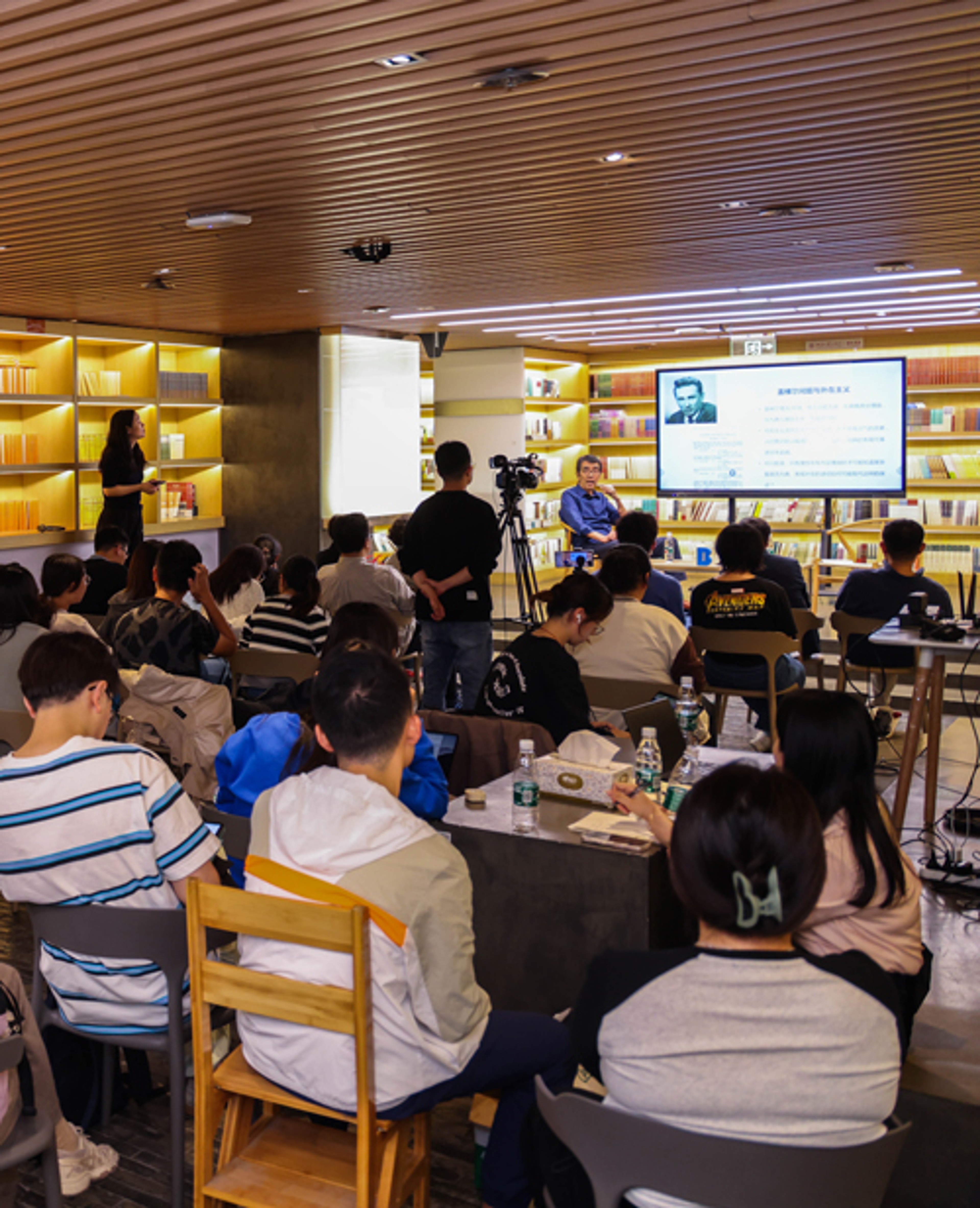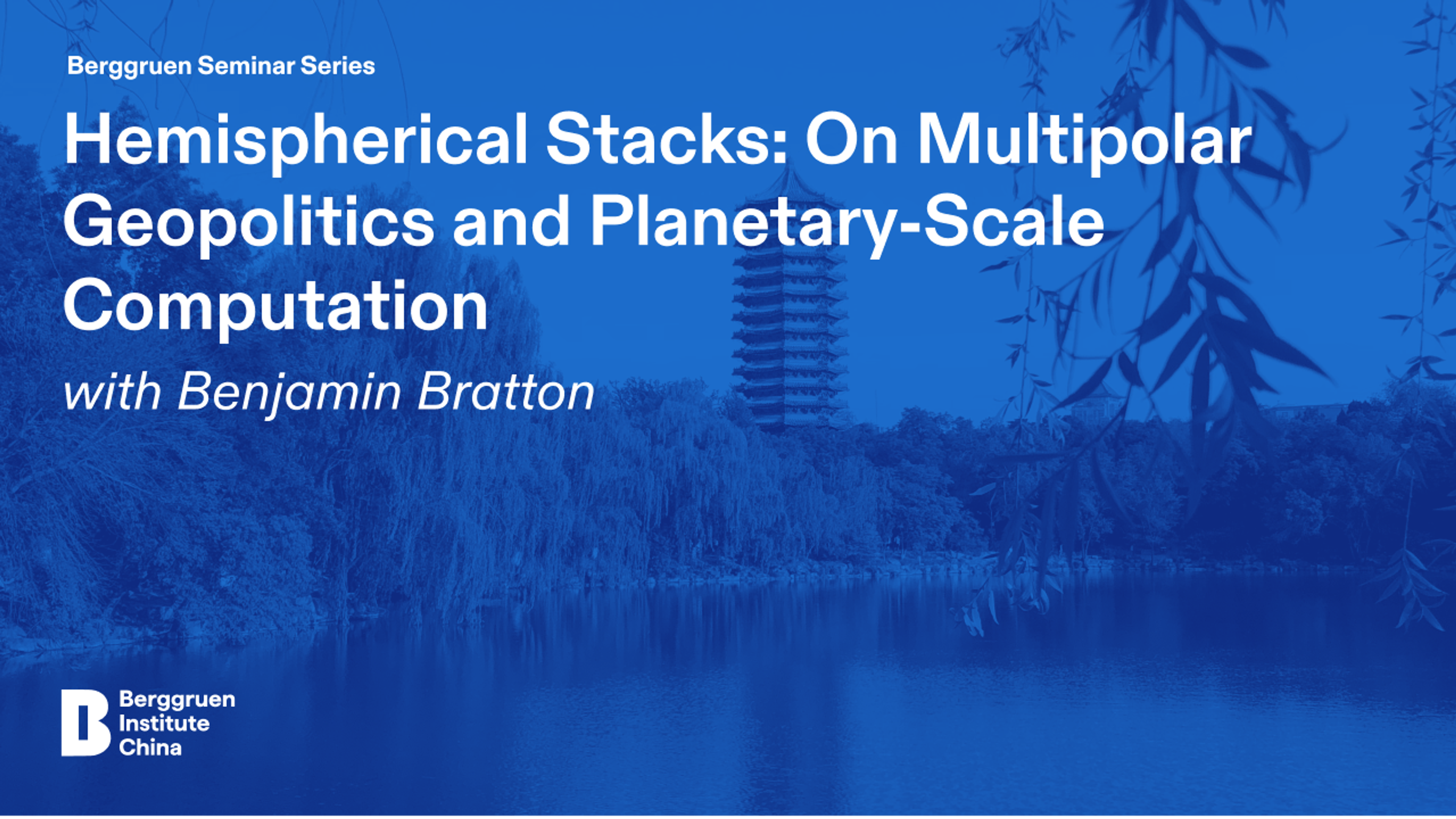Hemispherical Stacks: On Multipolar Geopolitics and Planetary-Scale Computation
- Date: April 27, 2023
- Location: Tsinghua University
On April 27, 2023, the 21st Berggruen Seminar was convened at
Tsinghua University, titled “Hemispherical Stacks: On Multipolar Geopolitics and Planetary-Scale Computation,” featuring Benjamin Bratton, a distinguished scholar in the philosophy of technology and the Director of the Antikythera program at the Berggruen Institute.
Bratton initiated the seminar by shedding light on the term “planetary
computation.” He underscored that this concept is not solely a human invention; rather, it’s a human discovery tied inextricably to our broader planetary condition. He challenged the audience to consider computation beyond mathematical frameworks and view it as an aspect of how intelligence relates to its environmental context. The aim, according to Bratton, is to invent new ideas that can better articulate the reality of our current technology and its implications.
Exploring the historical context, Bratton drew parallels between ancient
computational tools like the Sumerian tablet and the Antikythera mechanism and the current global computation infrastructure. In a profound observation, he compared the Event Horizon Telescope, which constructed the black hole image, to the Antikythera mechanism. He emphasized that both, despite the temporal and technological gap, are tools for sensing and interpreting data.
Moving forward, Bratton discussed the purpose of planetary computation, highlighting its pivotal role in climate science. He noted that
computation isn’t merely a tool to be governed by states or governments, but it is increasingly playing a role in governance itself. This led to an intriguing discussion on synthetic intelligence (AI). Bratton posited that we might have exhausted our current conceptual frameworks for explaining AI, and urged the audience to maintain an open-minded perspective on what AI truly is. Referring to examples such as AlphaGo, he purported that “AI…is not intelligence in some Kantian sense of intelligence, it is intelligence in some way that we still don’t have a word for.”
The seminar then delved into geopolitics, particularly how planetary-
scale computation is distorting political geography. Bratton discussed the
concept of “Hemispherical Stacks,” a term that encapsulates how planetary computation is mediating and manifesting governance. He suggested that the multi-polarization of geopolitics is inextricably linked to the multi-polarization of planetary computation. Bratton also touched upon the contentious topic of “sovereign data,” where state sovereignty is increasingly derived from model data and the geopolitical competition over data, hardware, and models.
The fourth subtheme revolves around “astropolitics,” referring to the
expansion of planetary computation beyond Earth, and “synthetic catallaxy,” denoting computational economics. He sparked a discussion around the definition of intelligence, introducing the term “planetary sapience” to encapsulate the holistic, emergent form of intelligence brought about by these new computational systems.
The seminar concluded with a lively Q&A session, with audience
members engaging Bratton on these complex topics. Overall, the seminar offered a profound exploration of the intersection between computation, geopolitics, and planetary existence, inviting attendees to reconsider their understanding of these domains in light of the ongoing technological transformation.
2023年4月27日,第21届博古睿研讨会在清华大学召开,主题为“
半球堆栈:关于多极地缘政治和行星级计算”,特邀嘉宾为科技哲学领域
的杰出学者,博古睿研究所安提凯希拉计划的主任本杰明·布拉顿
(Benjamin Bratton)。
布拉顿开场就对“行星级计算” (Planetary Computation) 一词进行了
解读。他强调,这个概念并非完全是人类的发明,而是人类发现,与我们
更广泛的行星境况密切相连。他挑战听众超越数学框架,将计算视为智能
如何与其环境上下文相联系的一个方面。布拉顿的目标是,提出新的观念
,能更好地描述我们当前的技术现状及其意义。
在探讨历史背景时,布拉顿将古代的计算工具如苏美尔人的石板、
安提凯希拉机械与当前的全球计算基础设施进行了类比。他深刻地将事件
视界望远镜(该望远镜构造了黑洞图像)与安提凯希拉机械进行了比较。
他强调,尽管存在时间和技术上的鸿沟,但这两者都是感知和解读数据的
工具。
之后,布拉顿讨论了行星级计算的目标,强调了它在气候科学中的
关键角色。他指出,计算不仅仅是一个受国家或政府管制的工具,而且越
来越多地参与到治理本身。这引发了对合成智能(AI)的有趣讨论。布拉
顿认为,我们可能已经耗尽了当前的概念框架来解释AI,他鼓励听众对AI
的真正含义保持开放的态度。他以AlphaGo等例子为例,声称:“AI…不是
某种康德意义上的智能,它是某种我们还没有词语来描述的智能。”
接着,研讨会深入讨论了地缘政治,特别是行星级计算如何扭曲政
治地理。布拉顿讨论了“半球堆栈”(Hemispherical Stacks) 这个概念,该概
念概括了行星级计算是如何介入和表现治理的。他提出,地缘政治的多极
化与行星级计算的多极化是密切相关的。布拉顿还涉及到了“主权数据”
(Sovereign Data) 这个有争议的话题,即国家主权越来越多地源于模型数据
以及对数据、硬件和模型的地缘政治竞争。
第四个子主题围绕“太空政治”(Astropolitics) 展开,指的是行星级
计算超越地球的扩展,以及“合成的卡特拉克西”,(Synthetic Catallaxy) 表
示计算经济学。他引发了关于智能定义的讨论,引入了“行星智慧”
(Planetary Sapience) 这个词,来概括由这些新的计算系统产生的整体性、
新兴的智能形式。
研讨会以一场热烈的问答环节结束,听众与布拉顿就这些复杂的话
题进行了交流。总的来说,此次研讨会深入探讨了计算、地缘政治和行星
存在之间的交叉点,邀请与会者在面临正在进行的技术转型的光照下,重
新思考他们对这些领域的理解。
--
Summary by Jin Young Lim and Kevin Wei





















